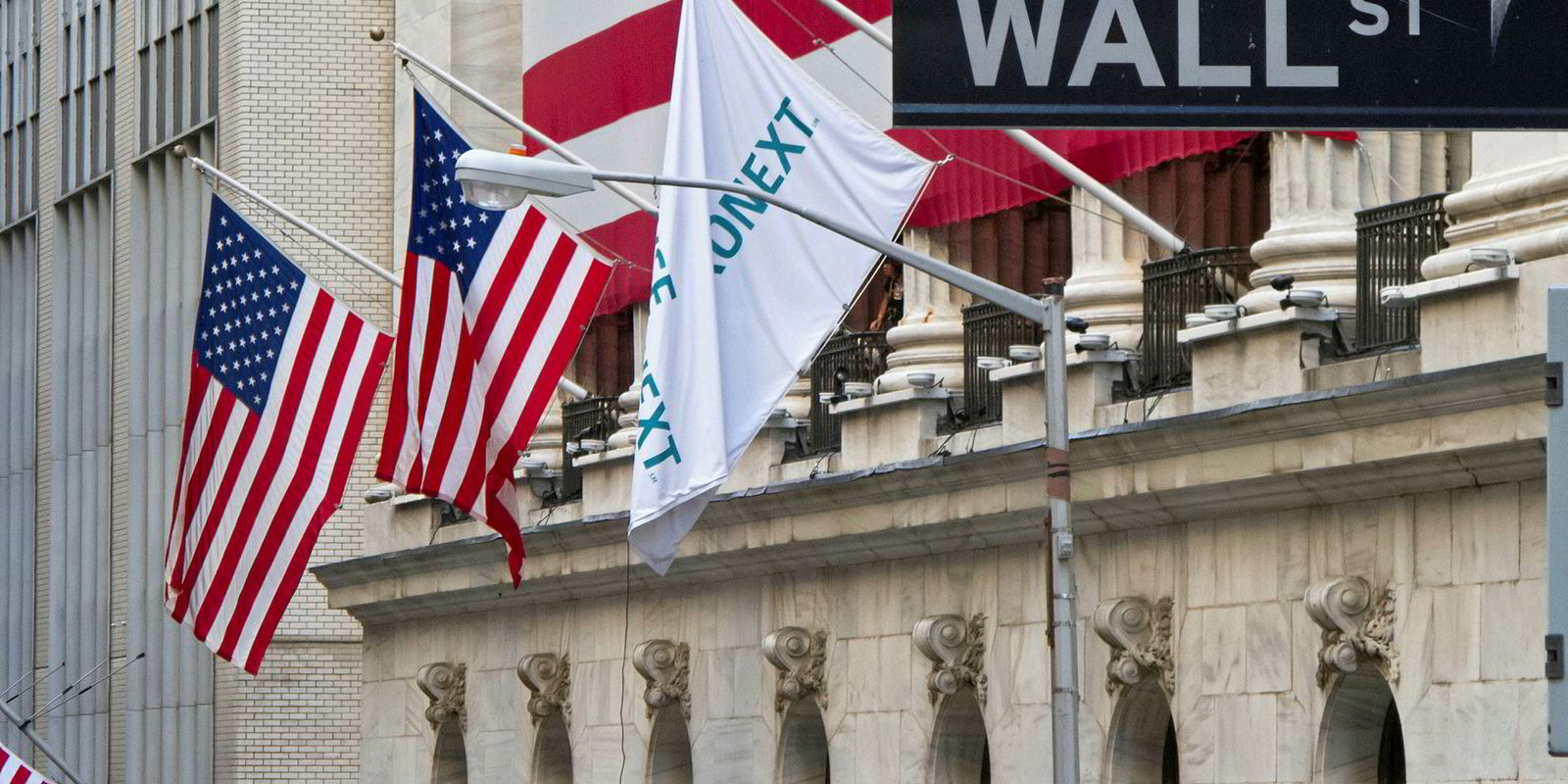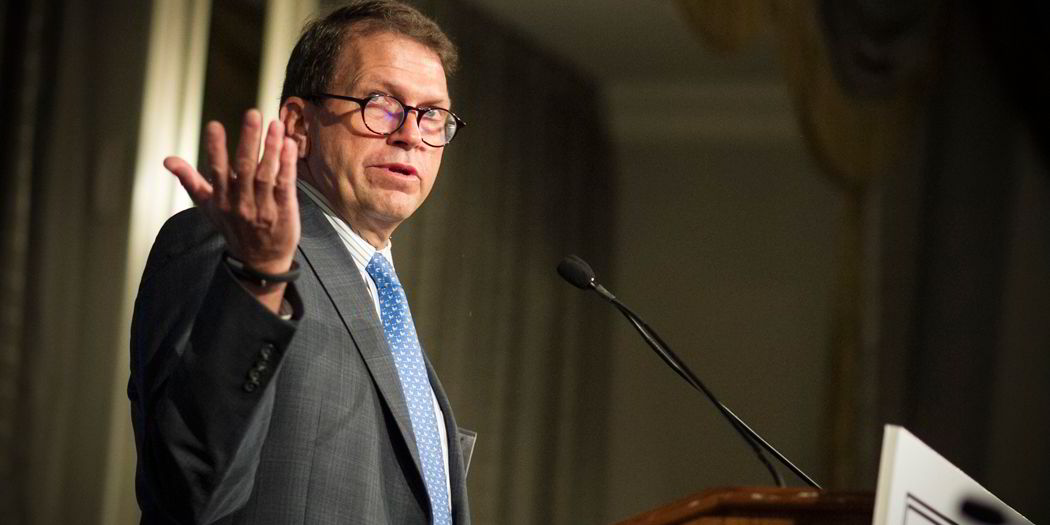It’s the earnings, stupid.
That in a nutshell was the diagnosis by a panel of bankers as to both the disease that is plaguing shipping stocks and the recommended cure, as told to an audience at Capital Link’s International Shipping Forum in New York.
Earn more money. And earn it for longer.
“Investors need to see proof of sustainability of earnings," said Erik Helberg, chief executive of Clarksons Platou Securities.
"We need to give the investor a break — I mean five years, no returns. Poor souls! It's fair to give them a little bit of a breather. It's fair for them to have taken a step back recently.
"But now we're about done with the breather and it's time (for owners) to take action,” Helberg said, alluding to optimism for a market recovery ahead of the IMO 2020 emissions deadline 1 January.
Jefferies managing director Douglas Mavrinac concurred, noting that few sectors outside of liquified natural gas (LNG) were currently turning in strong profits.
“The LNG guys are trading above (net asset value) for a reason,” Mavrinac said. “The tanker and dry-bulk companies aren’t, also for a reason.
“You need to show earnings and sustainability. You can't have a good market for three months and then a bad one. You're talking to investors who have lost money for the past 10 years. They need to see that this time is different.”
If the capital-markets panel discussed a landscape in which shipping is currently out of favour, an earlier assemblage of lenders described a different scenario in which there is plenty of capital available — although at a dear cost for some.
Reflecting the changing times for ship finance, representatives of two Chinese leasing companies sat beside officers of three traditional shipping banks.
The lineup reflected their ascendancy in the years since conventional European ship-mortgage financiers pulled back from the market amid regulatory and balance-sheet pressures.
Chinese leasing companies over the past year have upped their percentage of the total ship lending market to roughly 20% from 15%, agreed Lu Zhendong, deputy head of shipping for Bank of Communications Financing Leasing, and Bill Guo, executive director of ICBC Financial Leasing.
The incremental return of traditional lenders to the marketplace may be challenged by implementation of the Basel 4 lending protocols in 2022, said Shreyas Chipalkatty, managing director for global shipping, logistics and offshore for Citigroup.
"Capital costs are going to go up with Basel 4,” Chipalkatty said. “The nascent return of some European banks to the market could be challenged.”
Higher debt costs are already a fact of life for many owners, noted Martin Van Tuijl, managing director at DVB Bank.
“There's plenty of financing available," he said. "Maybe not so much from traditional lenders offering cheaper rates. It now comes in many forms and different prices. I don't see any ships that are not being financed — just financed at higher costs.”
That assessment led perfectly to a panel on alternative finance, where lenders stressed their flexibilty and speed while debating just how much shipowners can afford to pay in interest if they are to remain solvent.
"I don't believe you can sustainably charge 10% or 12% interest on the debt alone,” said Harris Antoniou, chief executive of Amsterdam Trade Bank.
He drew agreement from Michael Kirk, managing director of RMK Maritime, who said his firm typically targets a maximum 9.5% unlevered rate.
"If you're borrowing at 12% or 13%, it’s really hard to make those numbers work," Kirk said. “Maybe that's not a client we want to work with if that's where they're looking to borrow first-lien debt.”






